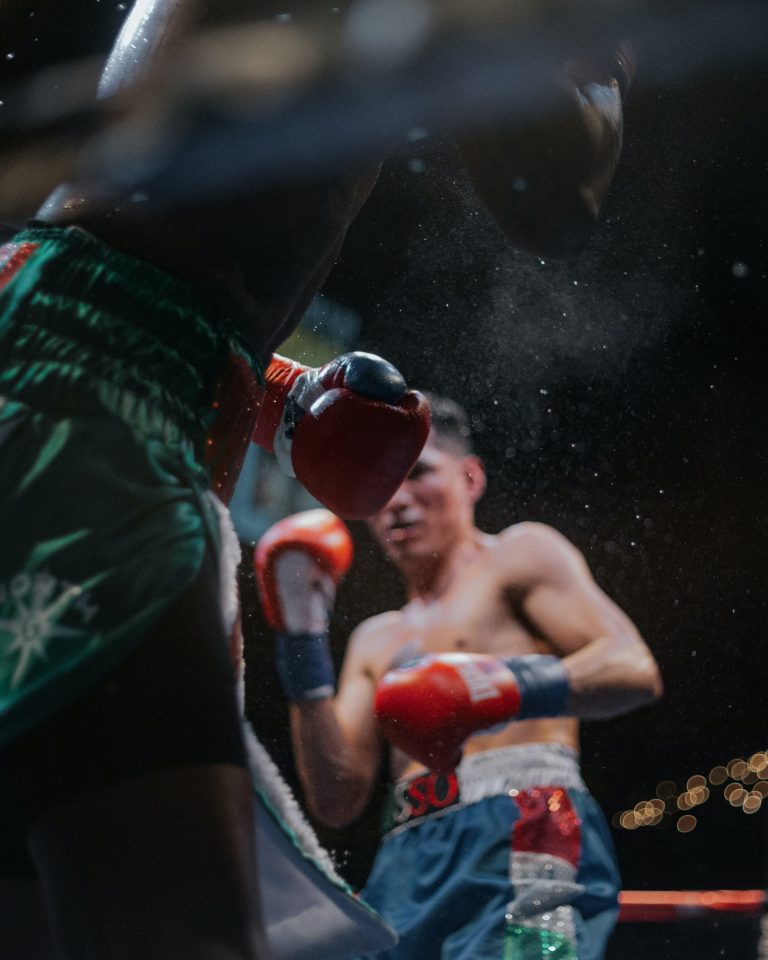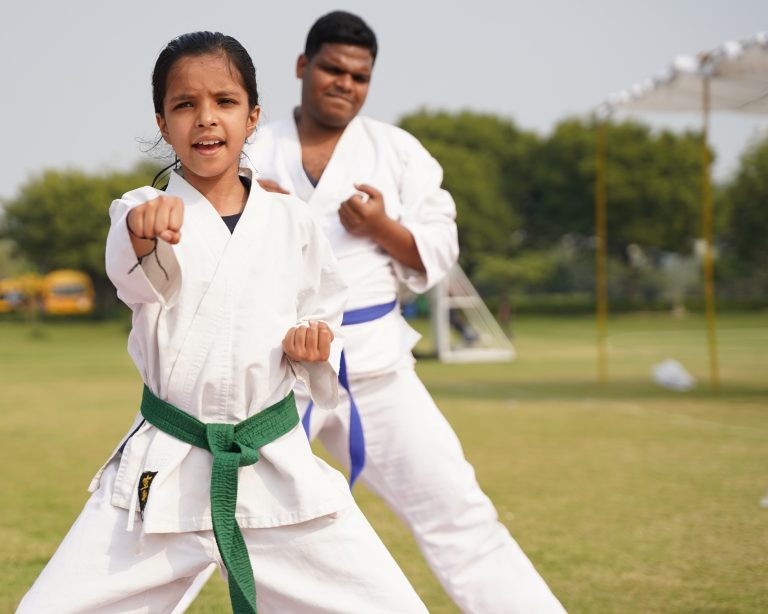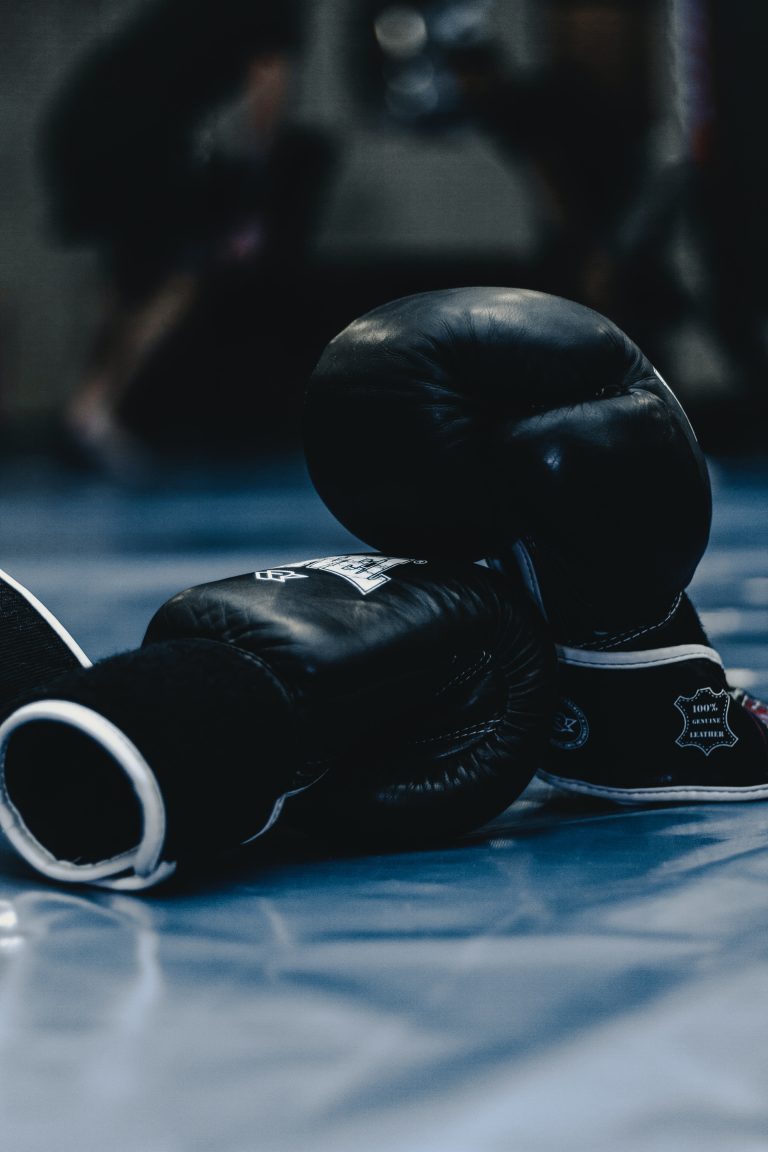How to Improve Your Karate Sparring: Tips and Techniques
Karate sparring, also known as Kumite, is an essential component of your karate training. It is the practical application of your skills and techniques against a live opponent. It is an essential aspect of karate training that challenges your physical and mental abilities. However, sparring can be intimidating and overwhelming, especially for beginners. In this blog post, I will share with you some useful tips and techniques to improve your karate sparring skills.
1. Improve Your Footwork
Footwork is one of the most crucial aspects of sparring. Your footwork determines your ability to move, evade, and attack. Good footwork enables you to maintain your balance, change directions quickly, and keep your opponent guessing. Here are some footwork drills you can practice to improve your sparring skills:
– Shadowboxing: practice your footwork and techniques without a partner. Shadowboxing enables you to visualize your opponent and practice your movements.
– Ladder drills: set up a ladder on the floor and practice footwork drills, running through the ladder with different steps and combinations. Ladder drill are effective for foot speed and agility.
– Circle movement: ths drill is about moving around your opponent to find the best position for attacking. You can use a set of cones or fighting pads to mark the edge of the circle, then move around inside the circle practicing footwork and techniques to increase speed.
2. Develop Your Timing and Distance Control
Timing and distance control are essential aspects of sparring. Good timing enables you to counterattack or initiate an attack with precision. Distance control plays a crucial role in keeping you out of harm’s way by allowing you to stay just out of range of your opponent’s attacks. Here are some techniques to improve your timing and distance control:
– Feinting: feinting is a technique that involves initiating a pretend attack to confuse your opponent and open up an opportunity for a real attack. It helps you improve your timing and control your opponent’s reactions.
– Slip, bob and weave: these are defensive techniques that enable you to avoid your opponent’s attacks by slipping, bobbing, and weaving. They are effective for improving your distance control and timing.
– Counters: counters are techniques that enable you to counterattack your opponent’s attack. They are effective techniques for improving your timing and control.
3. Practice Body Conditioning
Effective karate sparring requires a high level of physical conditioning. Your body needs to be strong and flexible to withstand the impact of punches, kicks, and take-downs. Here are some body conditioning techniques you can practice:
– Strength training: practice strength training exercises, such as squats, lunges, push-ups, and crunches that will help you build your core strength and improve your balance.
– Flexibility training: flexibility training, such as stretching exercises or yoga, will help you increase your range of motion and prevent injuries.
– Pad work: pad work is an effective way to develop your striking and kicking power and build your endurance. Practice pad work with your instructor or training partner.
4. Improve Your Mental Toughness
Karate sparring can be mentally challenging. You need to stay focused, calm, and composed under pressure. Here are some techniques to improve your mental toughness:
– Meditation: meditation is an effective way to improve your focus, calm your mind, and reduce stress.
– Visualization: visualization involves creating a mental image of yourself performing a technique or winning a sparring match. It helps you improve your confidence and mental toughness.
– Breathing techniques: breathing techniques, such as deep breathing or box breathing, help you relax and control your body’s response to stress.
How to Improve Your Karate Sparring: FAQs
If you are a karate practitioner, you might have heard about karate sparring, an essential part of the sport. However, sparring can be challenging, and it’s normal to have questions about how to improve your skills. In this blog post, we will answer some of the most frequent questions about how to improve your karate sparring.
1. How Can I Improve My Reflexes in Karate Sparring?
Reflexes are essential in karate sparring as they help you react quickly to your opponent’s moves. One way to improve your reflexes is by practicing reaction drills. One popular reaction drill is to have someone randomly call out a technique, and you have to perform the technique as fast as possible. Additionally, you can use reaction balls to improve your reflexes.
2. How Can I Increase My Speed in Karate Sparring?
Speed is crucial in karate sparring as it can help you land quick and precise strikes. To increase your speed, you should focus on agility and footwork exercises. Skipping, ladder drills, and jumping rope are great exercises to enhance your footwork and agility. Additionally, you can practice shadow sparring, where you mimic a sparring session without a partner. Shadow sparring can help you improve your speed and movement.
3. How Can I Improve My Stamina for Karate Sparring?
Karate sparring can be physically demanding, so having good stamina is important to avoid getting tired or fatigued during the fight. To improve your stamina, you can incorporate cardiovascular exercises such as running, cycling, or swimming into your training routine. These exercises can help improve your endurance and cardiovascular health. Additionally, you can do high-intensity interval training (HIIT) to improve your overall fitness levels.
4. How Can I Improve My Defense Techniques in Karate Sparring?
Having good defense techniques is crucial in karate sparring as it can help you avoid getting hit by your opponent’s attacks. To improve your defense, practice various blocking and evading techniques with a partner. During your practice, focus on your timing, distance, and footwork. Another way to improve your defense is by studying your opponent’s fighting style. Observe their movements and analyze how they attack, and develop countermeasures to defend yourself.
5. How Can I Improve My Confidence in Karate Sparring?
Confidence is essential in karate sparring as it can help you perform better and overcome nervousness. One way to improve your confidence is by visualizing your success before the fight. Close your eyes and visualize yourself performing at your best, landing successful strikes, and defending yourself effectively. Additionally, having a positive attitude and mindset can help you build confidence. Focus on your strengths, and don’t let negative thoughts affect your performance.
6. How Can I Improve My Accuracy in Karate Sparring?
Having good accuracy in karate sparring can help you land decisive strikes and win fights. To improve your accuracy, focus on your technique and form during training. Work on your strikes‘ precision and make sure your punches and kicks hit your target. Additionally, you can practice with focus mitts or bags to improve your accuracy and timing.
How to Improve Karate Sparring: Tips and Techniques
Karate sparring is an essential aspect of karate training. It is a way to test your skills and techniques against others, and it allows you to improve your techniques, speed, and timing. In this guide, we’ll cover some tips and techniques that can help you improve your karate sparring.
1. Develop Good Footwork
Your footwork plays a vital role in karate sparring. Proper footwork allows you to move quickly and dodge your opponent’s attacks. It also helps you to maintain your balance and stay in control. To develop good footwork, you should practice agility drills, lateral movements, and pivot turns. These exercises will help you to build strength and agility in your lower body.
2. Work on Your Timing
Timing is critical in karate sparring. You need to be able to anticipate your opponent’s moves and react quickly. To improve your timing, you should work on your reaction time. Practice drills such as hitting a target on command or sparring with a partner using pre-arranged moves. This will help you to develop your hikite, which is a pulling or retracting motion used in karate to set up attacks and counterattacks.
3. Practice Kihon Techniques
Kihon techniques are the basic building blocks of karate. They include strikes, blocks, and kicks. To improve your sparring skills, you should practice these techniques regularly. Focus on speed and accuracy, and try to perform them with maximum power.
4. Improve Your Fitness Level
Karate sparring requires a high level of fitness. You need to be able to maintain your energy and focus throughout the match. To improve your fitness level, you should focus on strength training, cardiovascular exercise, and flexibility training. You can incorporate these activities into your daily routine or attend specialized fitness classes.
5. Analyze Your Sparring Matches
After each sparring match, take some time to analyze what worked and what didn’t. Ask your partner for feedback on your techniques and try to identify areas for improvement. Use this feedback to adjust your training and sparring strategies. This will help you to improve your skills and become a better karateka.
6. Train with Different Partners
Training with different partners is an excellent way to improve your sparring skills. Each partner will have their strengths and weaknesses, which will challenge you to adapt and develop new techniques. You can also spar with partners who are more experienced or skilled than you. This will help you to learn from their techniques and perspectives.
7. Focus on Strategy
Karate sparring is not just about striking your opponent. It’s also about strategy and positioning. You need to be aware of your opponent’s movements and anticipate their attacks. One useful strategy is to keep your opponent off balance and use feints to set up your attacks. This will make it harder for them to anticipate your moves and give you an advantage.
Conclusion
Improving your karate sparring skills takes time, practice, and dedication. By following these tips and techniques, you can take your sparring to the next level. Remember to focus on your footwork, timing, kihon techniques, fitness level, and strategy. Train with different partners and analyze your matches to identify areas for improvement. By doing so, you will become a better karateka and reach your full potential.
Inhaltsverzeichnis






